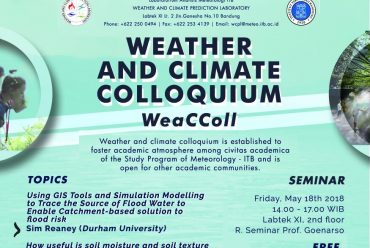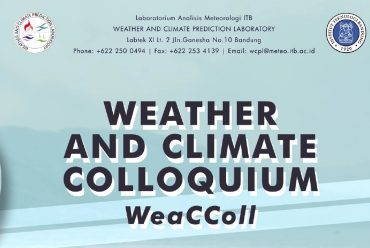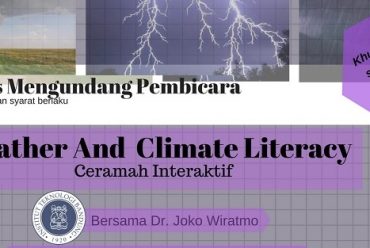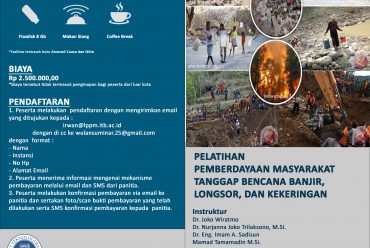Dean’s Keynote Opening of MSAT
Dean’s Keynote Opening of MSAT
Good morning, everyone.
It’s a great honor to welcome all of you.
On behalf of the Rector of ITB and the Dean of the Faculty of Earth Sciences and Technology (FITB), who are unable to attend due to an urgent meeting with the President of Indonesia, I, Dasapta Erwin Irawan, extend their warmest greetings to all of you. I am also the Vice Dean of FITB, Institut Teknologi Bandung.

A small sketchnote depicting the activities of FITB in the 2025 MSAT (sketchnote by: Dasapta Erwin Irawan).
To our guests from Korea: Pak Jang Chan Joo and Bu Bang Min Kyoung from KIOST, and Pak Bhoo Keun Khim from Pusan National University. Thank you for joining us. Now you have an additional Indonesian nick name “Pak” and “Bu”.
We also welcome Pak Yu Weidong from Sun Yat-sen University, China, and the representative of the Ministry of Marine Affairs and Fisheries, Pak Hendra Yusran Siry.
We also welcome our distinguished colleagues from BRIN, ITB, and BMKG. Your presence is highly valued.
Thank you all for being here.
FITB ITB is working to become an impactful university through educational and industrial collaboration.
Established in 2007, FITB has grown from four to ten expertise groups, with core disciplines in the lithosphere, hydrosphere, and atmosphere.
We take a unique approach to earth science, focusing on Nusantara-based science with interdisciplinary integration.
We educate future generations with an outcome-based and research-integrated curriculum, covering multidisciplinary fields such as Geology, Meteorology, Oceanography, Geodesy and Geomatics, and Groundwater Resources. Our alumni have a strong impact, with rising scientific publications and entrepreneurship.
We are also expanding our strong collaborative networks, partnering with organizations such as BMKG, BNPB, and MIND-ID, as well as global partners like EOS-NTU.
These collaborations contribute to the Sustainable Development Goals (SDGs) in areas like earth disaster risk, water, and climate action.
To address challenges such as limited external funding and weak linkages between research and industry, our FITB 2030 Vision is to collaborate for national and global recognition in earth sciences. We aim to be a collaborative and solution-oriented institution with an open and borderless education model.
We are building programs like the Integrated Geoscience Observation and Simulation (IGOS) for marine research and industrial collaboration. We also utilize sustainable partnership models, such as our FITB Kinarya platform and a sustainable fundraising initiative for research continuity.
Our strategic programs for 2026-2030 include double and joint degree programs, thematic research centers, and incubating start-ups from earth science innovations. We are ready to support industrial transformation and national development and invite you to collaborate with us in research, education, and community impact.
Thank you very much and may all of you have a fruitful meeting here in the 2025 MSAT.
Hits: 19





